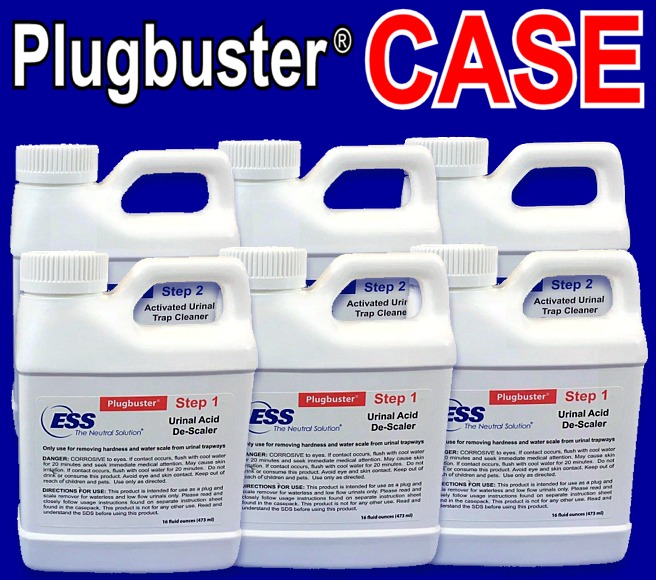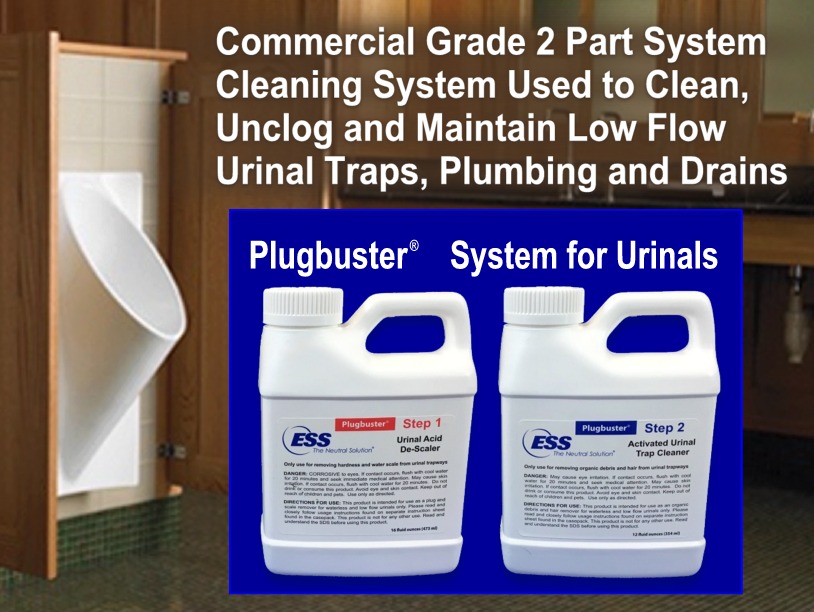Aluminum Parts Manufacturer
A manufacturer of aluminum parts need to apply a critical epoxy coating onto the aluminum part after cleaning off semi-synthetic machining coolants. They were considering a traditional process involving alkaline cleaning via spray washing, iron phosphating, and then coating. By using the ES-1000HD neutral cleaner:
- The aluminum parts were clean enough to eliminate the pre-paint phosphating step completely
- The epoxy coating was applied directly to the part cleaned with the ESS neutral soap
- Since ESS neutrals do not contain silicates (as required by alkaline cleaners in order to protect soft metals like aluminum), the parts were virtually residue free after cleaning
- Without surface residue, the intrinsic microscopic roughness of the machined aluminum surface provided proper surface texture to insure proper epoxy coating adhesion

- As a result of switching to the ESS neutral cleaner, there are over 250 million coated parts in the field without a single reported instance of coating de-lamination or failure
Brass Parts Manufacturer
 A manufacturer of systems needed to weld copper and brass tubing/pieces together after cleaning off extruding oils and machining coolants. They had used a traditional alkaline cleaner to clean parts in baskets via immersion cleaning. By using the ES-1600 neutral cleaner:
A manufacturer of systems needed to weld copper and brass tubing/pieces together after cleaning off extruding oils and machining coolants. They had used a traditional alkaline cleaner to clean parts in baskets via immersion cleaning. By using the ES-1600 neutral cleaner:
- The copper and brass parts were much cleaner and shinier than had ever been witnessed prior
- Replaced the need for 2 types of alkaline cleaners with just one ESS neutral
- Had a historic high rate of part QC rejections due to incomplete or faulty welds when using the alkaline cleaner
- The ferrous rust inhibitor contained in the ES-1600 was necessary because of the steel wash tank
- Since ESS neutrals do not contain silicates (as required by alkaline cleaners in order to protect soft metals), the parts were virtually residue free after cleaning
- As a result of switching to the ESS neutral cleaner, welding rejects were reduced by over 90%
Stainless Steel Manufacturer
 A manufacturer of stainless steel parts needed to remove deep drawing compound, machining oils, coolants and buffing compound from a variety of stainless steel parts. They had used a traditional alkaline cleaner to clean parts in spray washers. By using the ES-5001LF neutral cleaner:
A manufacturer of stainless steel parts needed to remove deep drawing compound, machining oils, coolants and buffing compound from a variety of stainless steel parts. They had used a traditional alkaline cleaner to clean parts in spray washers. By using the ES-5001LF neutral cleaner:
- The stainless steel parts met or exceeded cleanliness specifications
- The alkaline calcification and hardness build up in the washers was removed automatically over time
- No acid boil outs of the washers were needed over the 15 year period of use of the ESS neutral cleaner
- Washing was simplified and soap costs reduced without the need for the various additives (wetters, defoamers, etc.) that alkaline cleaners often require
- As a result of switching to the ESS neutral cleaner, acid neutralization and acid washer clean outs were completely eliminated, significantly reducing maintenance costs, safety issues and washer down time
Buffed Aluminum Part Manufacturer
A manufacturer of high shine (almost chrome-like) buffed aluminum parts needed to preserve the high shine on the parts while still getting them clean. They had used a traditional alkaline cleaner to clean parts in spray washers, but the parts came out of the washer more dull than they were going in. By using the ES-5005 2X CONCENTRATE neutral cleaner:
- The buffed aluminum parts met or exceeded cleanliness specifications with minimal wiping
- The high shine was perfectly preserved after passing through the spray washer (even with a wash temperature of 160°F)
- The possibility of etching the aluminum was completely eliminated due to the true neutral pH of the ESS neutral cleaner
- The alkaline calcification and hardness build up in the washers was removed automatically over time
- As a result of switching to the ESS neutral cleaner, the buffed aluminum parts were clean and the chrome-like finish (high brightness) was preserved after exiting the wash process.
Machined Steel Part Manufacturer
A manufacturer of machined parts needed to get the steel parts clean, while eliminating the white film that would interfere with the welding process. They had used a traditional alkaline cleaner to clean parts in spray washers, but the parts came out of the washer more dull than they were going in. By using the ES-5601LF 2X CONCENTRATE neutral cleaner:
- The steel parts met or exceeded cleanliness specifications with minimal wiping
- The white film normally seen had disappeared after washing (even with a wash temperature of 160°F)
- The steel parts achieved adequate rust protection (against atmospheric humidity) due to the contained rust inhibitor in the ESS neutral product
- The alkaline calcification and hardness build up in the washers was removed automatically over time and did not return
- Maintenance staff no longer had to don the protective “moonsuit” when working on the washer
- As a result of switching to the ESS neutral cleaner, the machined steel parts were clean and free from surface rust and white residue after exiting the wash process – resulting in better welds.
Multi-Metal Machined Part Manufacturer
 A manufacturer of machined parts (made from steel, brass, copper, and aluminum) needed to get the parts clean, while eliminating the need to use different alkaline soaps for the different metals. They had used two different traditional alkaline cleaners – one for steel and one for soft metals – to clean parts in spray and immersion washers. By using the ES-1601LF neutral cleaner:
A manufacturer of machined parts (made from steel, brass, copper, and aluminum) needed to get the parts clean, while eliminating the need to use different alkaline soaps for the different metals. They had used two different traditional alkaline cleaners – one for steel and one for soft metals – to clean parts in spray and immersion washers. By using the ES-1601LF neutral cleaner:
- All parts could be washed through the same ESS neutral soap because of the true neutral pH
- The parts met or exceeded cleanliness specifications
- The steel parts achieved adequate rust protection (against atmospheric humidity) due to the contained rust inhibitor in the ESS neutral product, while the soft metal parts had no noticeable residue
- As a result of switching to the ESS neutral cleaner, the extra washer downtime and production delays were eliminated due to switching between two alkaline cleaners for different metal types.
Machine Shop
 A manufacturer of machined parts needed to get multiple part types clean washed through a number of different washer styles. They had used a number of different traditional alkaline cleaners to clean parts in spray, immersion and rotary drum washers, as well as a different floor cleaning product. By using the ES-1600 neutral cleaner:
A manufacturer of machined parts needed to get multiple part types clean washed through a number of different washer styles. They had used a number of different traditional alkaline cleaners to clean parts in spray, immersion and rotary drum washers, as well as a different floor cleaning product. By using the ES-1600 neutral cleaner:
- One ESS neutral soap replaced a multitude of alkaline cleaners used in multiple parts washers
- The parts met or exceeded cleanliness specifications
- The same ESS neutral soap was also used in mop and scrubber applications, with a dilution station competitively controlling dosing and cost to be comparable to alkaline floor cleaners
- As a result of switching to the ESS neutral cleaner, soap purchases were streamlined and simplified, which resulted in less cleaning issues and lower cleaning cost.
Consumer Product Manufacturer
 A manufacturer of a consumable consumer product needed to more effectively clean process equipment with less chance for remaining soap residues. The stainless steel process equipment consisted of blades, bins, and machinery that needed daily cleaning after production use. By using the ES-5001LF neutral cleaner:
A manufacturer of a consumable consumer product needed to more effectively clean process equipment with less chance for remaining soap residues. The stainless steel process equipment consisted of blades, bins, and machinery that needed daily cleaning after production use. By using the ES-5001LF neutral cleaner:
- The noticeable white residue from the previous alkaline cleaner was no longer present, resulting in cleaner equipment and less chance for product contamination
- Replaced the previous hazardous product, lessening the chance for worker exposure and product contamination
- As a result of switching to the ESS neutral cleaner, daily equipment cleanings resulted in less chance for residue and less worker exposure to hazardous cleaners.
Machined Product Manufacturer
A machined part manufacturer needed to apply a satin/nickel finish to aluminum parts. The traditional oils/coolants used in conjunction with the abrasive pads to apply this finish created cleaning issues. By using the ES-5001LF neutral cleaner:
- The finish was successfully applied with less friction heat generated
- There was far less particulate re-welds to the surface during the finish process
- The abrasive pads stayed cleaner longer, increasing longevity of use as well as reducing the chance for particulate scratches and defects from embedded particles
- Cleaning was tremendously simplified in that the ESS neutral soap solution was merely rinsed from the surface with no formal cleaning required
- As a result of switching to the ESS neutral cleaner, pad usage and cleaning costs were significantly reduced while maintaining finish quality.





